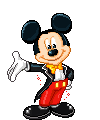|
|
|

|
Ψ Introduction
- Improve your studying! -
|

|
|
Ψ A common complaint from students is that their study is ineffective; because, students are often poor judges of what they know, the use of self tests such as those in most texts & most textbook support web sites can fix this.
Ψ A plan for time management using the right sort of goals is also effective in improving study results.
Types of study goals:
 Time Time  General General  Specific performance goals Specific performance goals
 Reward yourself when goals are reached (self-reinforcement). Reward yourself when goals are reached (self-reinforcement).
 Take notes! Take notes!
• Use your own words.
• Use an outline format.
• Associate new material with old.
• Ask yourself questions as you study, then look for the answers.
 Stop procrastinating: Stop procrastinating:
1. Stop thinking or worrying about the final goal, conquer today's work.
2. Break the overall task down into smaller more reachable goals.
3. Write down a realistic schedule that you know you can follow.
 Read the textbook! Read the textbook!
Ψ Many students don't bother to read the textbook before going to the lecture that will cover the material. Trying to get anything out of a lecture without reading the material first is like trying to find a new, unfamiliar place without using a map or a GPS device. You can get lost real quick. This is especially true because most instructors in the traditional college setting make the assumption that the student has in fact prepared for the class by reading the assignment to be covered by the lecture. The instructors then use the lecture to expound on the
information the student has supposedly got from the reading. If the student's have
failed to do the reading, the lecture may not make a lot of sense.
|

|
 Think Critically! Think Critically!
Ψ Critical thinking means
making reasoned judgments. It is the intellectually disciplined process of actively and skillfully conceptualizing, applying, analyzing, synthesizing, and/or evaluating information gathered from, or generated by, observation, experience, reflection, reasoning, or communication, as a guide to belief & action.
Ψ A Critical thinker
• raises vital questions & problems, formulating them clearly & precisely.
• gathers & assesses relevant information. Uses abstract ideas to interpret that information effectively.
• comes to well-reasoned conclusions & solutions by testing them against relevant criteria & standards.
• thinks openmindedly within alternative systems of thought, recognizing & assessing, as need be, their assumptions, implications, & practical consequences.
• communicates effectively with others in figuring out solutions to complex problems.
|









 Think Critically!
Think Critically!
